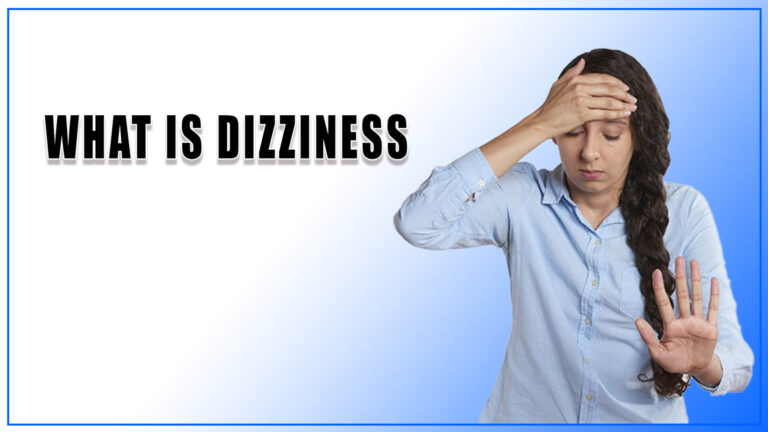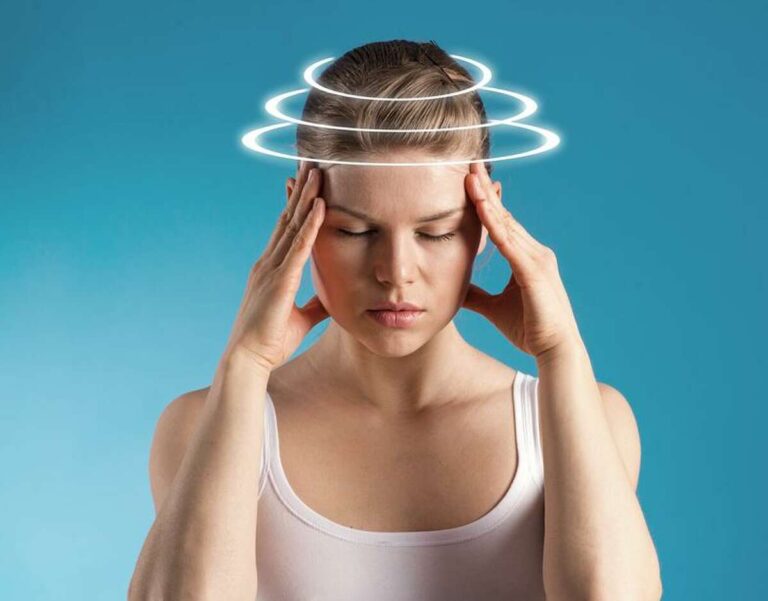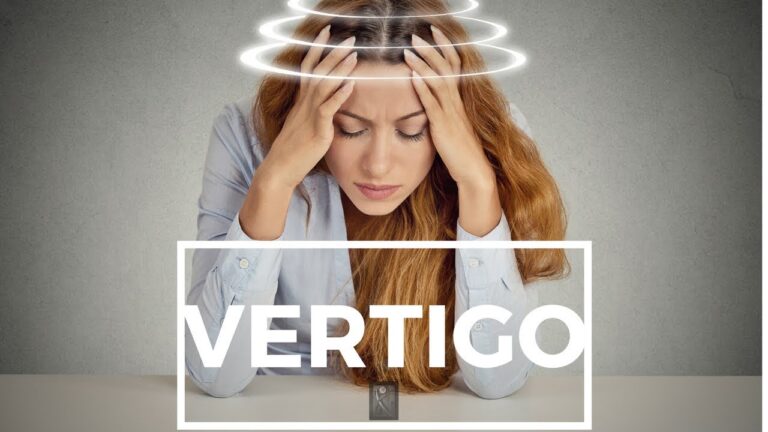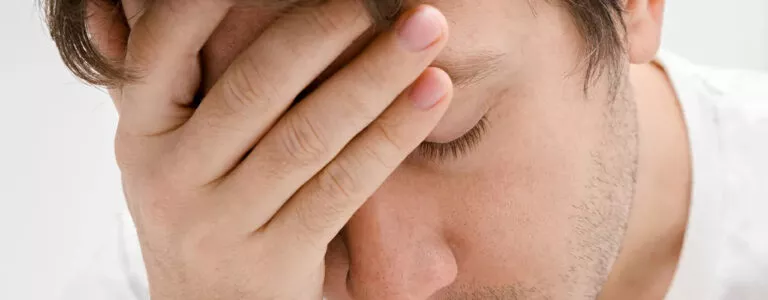WHAT IS DIZZINESS?
Dizziness is a term used to describe a range of sensations, like feeling faint, woozy, weak, or unsteady. Dizziness that creates the false sense that you or your surroundings are spinning or moving is known as vertigo.
Dizziness is one of the more frequent reasons adults visit their doctors. Frequent dizzy spells or constant dizziness could significantly affect your life. But dizziness rarely indicates a life-threatening condition.
Treatment of dizziness depends upon the cause and your symptoms. It is usually effective, but the problem might recur.
DIZZINESS SYMPTOMS
People experiencing dizziness might describe it as any of a number of sensations, like:
- A false sensation of motion or spinning (vertigo)
- Lightheadedness or feeling faint
- Unsteadiness or a loss of balance
- A feeling of floating, wooziness, or heavy-headedness
These feelings might be triggered or worsened by walking, standing up, or moving your head. Your dizziness might be accompanied by nausea or be so sudden or severe that you need to sit or lie down. The episode may last seconds or days and might recur.
WHEN SHOULD YOU SEE A DOCTOR?
Generally, see your doctor if you experience any recurrent, unexpected, severe, or prolonged and unexplained dizziness or vertigo.
Get emergency medical care if you experience new, serious dizziness or vertigo along with any of the following:
- Sudden, severe headache
- Chest pain
- Difficulty breathing
- Numbness or paralysis of arms or legs
- Fainting
- Double vision
- Rapid or irregular heartbeat
- Confusion or slurred speech
- Stumbling or difficulty walking
- Ongoing vomiting
- Seizures
- A sudden change in hearing
- Facial numbness or weakness
DIZZINESS CAUSES
Dizziness has various possible causes, including inner ear disturbance, motion sickness, and medication effects. Sometimes it is caused by an underlying health condition, like poor circulation, infection, or injury.
The way dizziness makes you feel and your triggers offer clues for possible causes. How long the dizziness lasts and any other symptoms you have also help identify the cause.
Inner ear problems that cause dizziness (vertigo)
Your sense of balance depends on the combined input from the different parts of your sensory system. These include your:
- The eyes, help you determine where your body is in space and how it is moving
- Sensory nerves, that send messages to your brain about body movements and positions
- The Inner ear, houses sensors that help detect gravity and back-and-forth motion
Vertigo is the false sensation that your surroundings are spinning or moving. With inner ear disorders, your brain receives signals from the inner ear that are not consistent with what your eyes and sensory nerves are receiving. Vertigo is what results as your brain works to resolve the confusion.
- Benign paroxysmal positional vertigo (BPPV) – This condition causes an intense and brief but false sensation that you are spinning or moving. These episodes are triggered by a rapid change in head movement like when you turn over in bed, sit up or experience a blow to the head. BPPV is the most frequent reason for vertigo.
- Infection – A viral infection of the vestibular nerve, known as vestibular neuritis, can cause intense, constant vertigo. If you also have sudden hearing loss, you might have labyrinthitis.
- Meniere’s disease – This disease includes the excessive accumulation of fluid in your inner ear. It is characterized by unexpected episodes of vertigo lasting as long as several hours. You might also experience fluctuating hearing loss, ringing in the ear, and the feeling of a plugged ear.
- Migraine – People who experience migraines might have episodes of vertigo or other types of dizziness even when they are not having a severe headache. Such vertigo episodes could last minutes to hours and may be associated with headaches as well as light and noise sensitivity.
Circulation problems that cause dizziness
You might feel dizzy, faint, or off balance if your heart is not pumping enough blood to your brain. Causes include:
- Drop in blood pressure – A dramatic drop in your systolic blood pressure — the higher number in your blood pressure reading — might result in brief lightheadedness or a feeling of faintness. It could occur after sitting up or standing too quickly. This condition is otherwise known as orthostatic hypotension.
- Poor blood circulation – Conditions like cardiomyopathy, heart attack, heart arrhythmia, and transient ischemic attack can cause dizziness. And a decrease in blood volume might cause inadequate blood flow to your brain or inner ear.
Other causes of dizziness
- Neurological conditions – Some neurological disorders — like Parkinson’s disease and multiple sclerosis — could lead to progressive loss of balance.
- Medications – Dizziness can be a side effect of certain medications — like anti-seizure drugs, antidepressants, sedatives, and tranquilizers. In particular, blood pressure lowering medications might cause faintness if they lower your blood pressure too much.
- Anxiety disorders – Certain anxiety disorders might cause lightheadedness or a woozy feeling often referred to as dizziness. These involve panic attacks and a fear of leaving home or being in large, open spaces (agoraphobia).
- Low iron levels (anemia) – Other signs and symptoms that might occur along with dizziness if you have anemia include fatigue, weakness, and pale skin.
- Low blood sugar (hypoglycemia) – This condition usually occurs in people with diabetes who use insulin. Dizziness (lightheadedness) might be accompanied by sweating and anxiety.
- Carbon monoxide poisoning – Symptoms of carbon monoxide poisoning are usually described as “flu-like” and include headache, dizziness, weakness, upset stomach, vomiting, chest pain, and confusion.
- Overheating and dehydration – If you are active in hot weather or if you do not drink enough fluids, you might feel dizzy from overheating (hyperthermia) or from dehydration. This is particularly true if you take certain heart medications.
DIZZINESS RISK FACTORS
Factors that might increase your risk of getting dizzy include:
- Age – Older adults are more likely to have medical conditions that cause dizziness, particularly a sense of imbalance. They are also more likely to take medications that could cause dizziness.
- A past episode of dizziness – If you have experienced dizziness before, you are more likely to feel dizzy in the future.
DIZZINESS COMPLICATIONS
Dizziness could increase your risk of falling and injuring yourself. Experiencing dizziness while driving a car or operating heavy machinery could increase the likelihood of an accident. You might also experience long-term consequences if an existing health condition that may be causing your dizziness goes untreated.
DIZZINESS DIAGNOSIS
If your doctor suspects you are having or might have had a stroke, are older, or suffered a blow to the head, he or she may immediately order an MRI or CT scan.
Most people visiting their doctor because of dizziness will first be asked about their symptoms and medications and then be given a physical exam. During this examination, your doctor will check how you walk and maintain your balance and how the major nerves of your central nervous system are working.
You might also need a hearing test and balance tests, including:
- Eye movement testing – Your doctor might watch the path of your eyes when you track a moving object. And you might be given an eye motion test in which water or air is placed in your ear canal.
- Head movement testing – If your doctor suspects your vertigo is caused by benign paroxysmal positional vertigo, he or she may do a simple head movement test known as the Dix-Hallpike maneuver to verify the diagnosis.
- Posturography – This test tells your doctor which parts of the balance system you rely on the most and which parts might be giving you problems. You stand in your bare feet on a platform and try to keep your balance under many conditions.
- Rotary chair testing – During this test you are seated in a computer-controlled chair that moves very slowly in a full circle. At higher speeds, it moves back and forth in a very small arc.
In addition, you might be given blood tests to check for infection and other tests to check heart and blood vessel health.
DIZZINESS TREATMENT
Dizziness usually gets better without treatment. Within a couple of weeks, the body generally adjusts to whatever is causing it.
If you seek treatment, your doctor will rely on the cause of your condition and your symptoms. It might include medications and balance exercises. Even if no cause is found or if your dizziness persists, prescription drugs and other treatments might make your symptoms more manageable.
Medications
Water pills – If you have Meniere’s disease, your doctor might prescribe a water pill (diuretic). This along with a low-salt diet might help reduce how often you have dizziness episodes.
Medications that relieve dizziness and nausea – Your doctor might prescribe drugs to provide immediate relief from vertigo, dizziness, and nausea, including prescription antihistamines and anticholinergics. A lot of these drugs cause drowsiness.
Anti-anxiety medications – Diazepam (Valium) and alprazolam (Xanax) are in a class of drugs known as benzodiazepines, which may cause addiction. They might also cause drowsiness.
Preventive medicine for migraine – Certain medicines might help prevent migraine attacks.
Therapy
Head position maneuvers – A technique known as canalith repositioning (or Epley maneuver) generally helps resolve benign paroxysmal positional vertigo more quickly than simply waiting for your dizziness to go away. It could be done by your doctor, an audiologist, or a physical therapist and involves maneuvering the position of your head. It is generally effective after one or two treatments. Before undergoing this procedure, tell your care provider if you have a neck or back condition, a detached retina, or blood vessel issues.
Balance therapy – You might learn specific exercises to help make your balance system less sensitive to motion. This physical therapy technique is otherwise known as vestibular rehabilitation. It is used for people with dizziness from inner ear conditions like vestibular neuritis.
Psychotherapy – This type of therapy might help people whose dizziness is caused by anxiety disorders.
Surgical or other procedures
Injections – Your doctor might inject your inner ear with the antibiotic gentamicin to disable the balance function. The unaffected ear takes over this function.
Removal of the inner ear sense organ – A procedure that is rarely used is known as labyrinthectomy. It disables the vestibular labyrinth of the affected ear. The other ear takes control of the balance function. This technique may be used if you have severe hearing loss and your dizziness has not responded to other treatments.
If you or anyone you know is suffering from dizziness, our expert providers at Specialty Care Clinics will take care of your health and help you recover.
Call 469-545-9983 to book a telehealth appointment for an at-home check-up.




